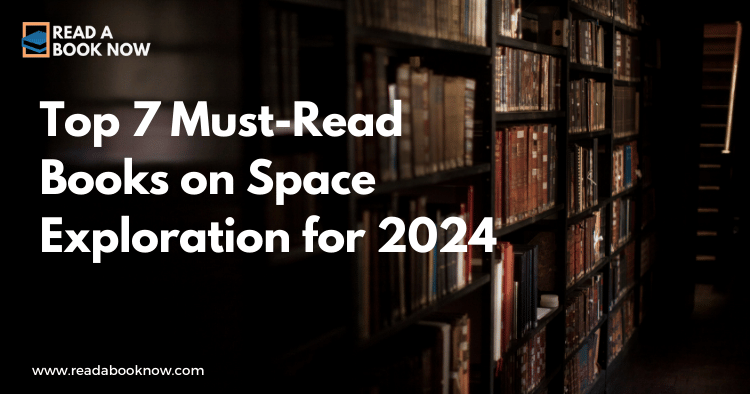Table of Contents
- Introduction
- 1. “The Martian” by Andy Weir
- 2. “Astrophysics for People in a Hurry” by Neil deGrasse Tyson
- 3. “The Right Stuff” by Tom Wolfe
- 4. “An Astronaut’s Guide to Life on Earth” by Chris Hadfield
- 5. “Cosmos” by Carl Sagan
- 6. “The Overview Effect” by Frank White
- 7. “Space Atlas: Mapping the Universe and Beyond” by James Trefil
- Conclusion
- FAQs
Introduction
Space exploration continues to captivate our imagination and curiosity about the universe beyond our planet. As we approach an exciting year for space travel in 2024, filled with missions and discoveries, numerous books can inspire both seasoned enthusiasts and curious newcomers. Here are the top seven must-read books on space exploration for 2024.
1. “The Martian” by Andy Weir
Andy Weir’s “The Martian” is not just a thrilling science fiction novel; it’s a testament to human ingenuity and resilience. The story follows astronaut Mark Watney, who becomes stranded on Mars and uses his wits, engineering skills, and a healthy dose of humor to survive.
Why You Should Read It: This book brilliantly combines accurate science with a gripping narrative, making it an essential read for anyone interested in space exploration. It’s a perfect reminder that while the cosmos can be unforgiving, human creativity knows no bounds.
Learn more about “The Martian”
2. “Astrophysics for People in a Hurry” by Neil deGrasse Tyson
Neil deGrasse Tyson’s “Astrophysics for People in a Hurry” simplifies complex scientific concepts into digestible nuggets of information. This concise guide offers insights into the universe, black holes, quantum mechanics, and more, all while maintaining an engaging and approachable tone.
Why You Should Read It: If you’ve ever felt overwhelmed by the vastness of space, Tyson’s witty and clear writing style makes astrophysics accessible to everyone. It’s a fantastic primer for those looking to understand the universe without getting lost in jargon.
Discover more about Neil deGrasse Tyson’s work
3. “The Right Stuff” by Tom Wolfe
Tom Wolfe’s “The Right Stuff” chronicles the early days of the U.S. space program and the brave astronauts who risked their lives for exploration. Wolfe captures the spirit of the time, providing an in-depth look at the personalities and pressures faced by these pioneers.
Why You Should Read It: This non-fiction classic not only details the technical aspects of space travel but also explores the psychological challenges faced by astronauts. It’s a compelling narrative that celebrates human courage and ambition.
Find out more about “The Right Stuff”
4. “An Astronaut’s Guide to Life on Earth” by Chris Hadfield
In “An Astronaut’s Guide to Life on Earth,” astronaut Chris Hadfield shares his experiences both in space and on Earth. Through anecdotes and insightful lessons, Hadfield explores how his time in orbit has shaped his perspective on life.
Why You Should Read It: This book is more than a memoir; it offers practical advice on how to approach challenges and embrace opportunities. Hadfield’s humor and wisdom make it an engaging read for anyone interested in personal development and exploration.
Explore Chris Hadfield’s adventures
5. “Cosmos” by Carl Sagan
Carl Sagan’s “Cosmos” is a timeless classic that explores the universe’s mysteries and the evolution of life on Earth. With a poetic touch, Sagan discusses the cosmos, science, and our place in the universe.
Why You Should Read It: “Cosmos” remains one of the most influential science books ever written. Sagan’s ability to convey the wonder of the universe will inspire readers to look up at the stars with new appreciation.
Learn more about Carl Sagan’s legacy
6. “The Overview Effect” by Frank White
Frank White’s “The Overview Effect” provides an intriguing look at how space travel alters human consciousness. Through interviews with astronauts, White examines their transformative experiences and how viewing Earth from space has reshaped their perspectives.
Why You Should Read It: This book highlights the profound impact of space exploration on humanity’s understanding of itself. It’s a thought-provoking read that will change how you view our planet and its inhabitants.
Read more about The Overview Effect
7. “Space Atlas: Mapping the Universe and Beyond” by James Trefil
James Trefil’s “Space Atlas” is an incredible resource that combines stunning visuals with comprehensive maps of the universe. This book covers everything from planetary systems to cosmic phenomena, providing a unique perspective on our galaxy and beyond.
Why You Should Read It: If you’re a visual learner or just love beautiful illustrations, this book will captivate you. It serves as both an educational guide and a coffee table book that will spark conversations about space.
Check out more about “Space Atlas”
Conclusion
As we look forward to an exciting year in space exploration, these seven books provide a mix of inspiration, education, and entertainment. Whether you’re interested in the technical aspects of space travel, the experiences of astronauts, or the philosophical implications of our place in the universe, there’s something for everyone. Grab one (or all) of these titles and prepare for a journey beyond the stars!
FAQs
Q: What are the key themes in space exploration literature?
A: Common themes include human resilience, the quest for knowledge, the impact of technology, and the philosophical implications of our existence in the cosmos.
Q: Are there any children’s books on space exploration?
A: Yes! Some great options include “There’s No Place Like Space: All About Our Solar System” by Tish Rabe and “The Darkest Dark” by Chris Hadfield.
Q: How can I stay updated on new space exploration books?
A: Consider following space-focused publishers, reading book reviews on platforms like Goodreads, or subscribing to newsletters from organizations like NASA.
Q: Why is space exploration important?
A: Space exploration expands our understanding of the universe, drives technological advancements, and fosters international collaboration for peaceful and scientific purposes.
For more literary inspiration, also check out our recommendations for 10 Timeless American Classics You Must Read Today and Top 10 Must-Read 17th Century Classics for Book Lovers.




